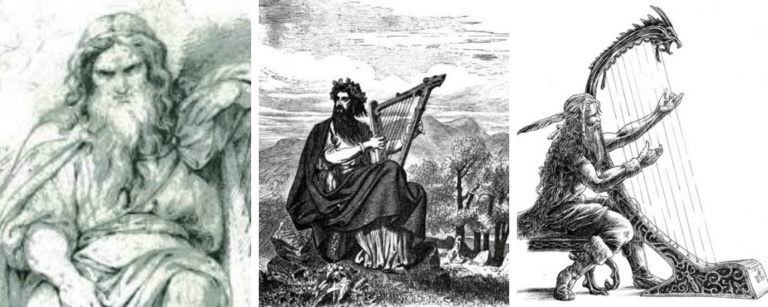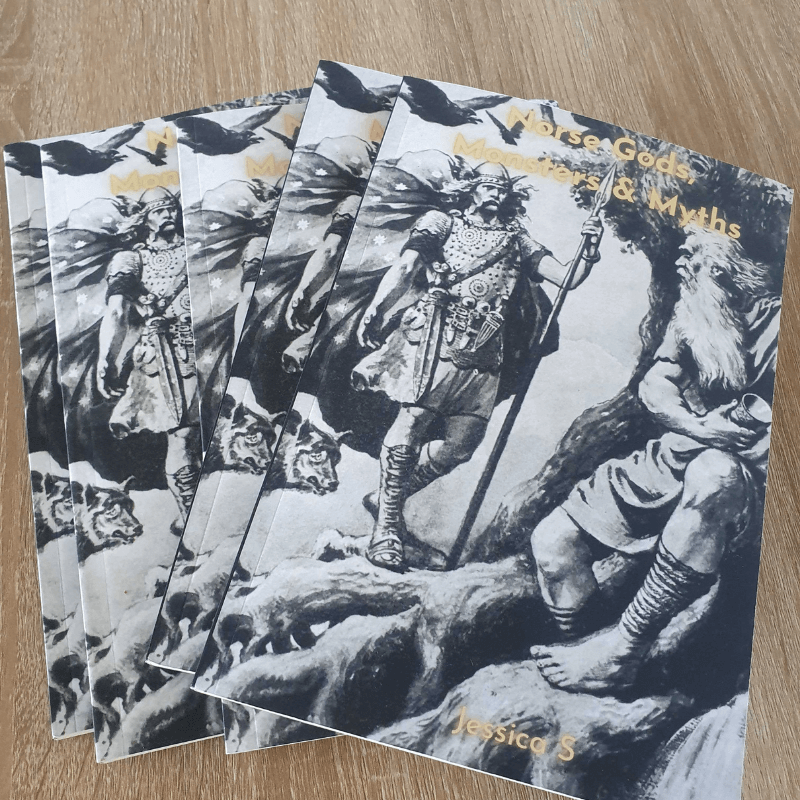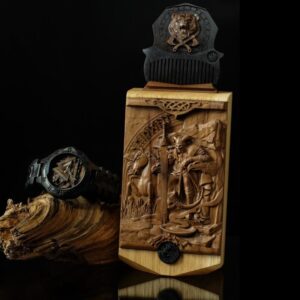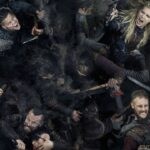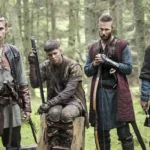There are many more gods in the Norse pantheon than just the ones that most people know from the Marvel cinematic universe. Unfortunately, our knowledge of many of them is quite limited because we have to piece it together from fragments of surviving information.
Bragi, the Bard of Asgard, is one of those gods about whom we know relatively little. In fact, we can’t even be sure whether he is one of the Aesir gods, or one of the deceased warriors that live in Valhalla, Odin’s hall in Asgard.
Let’s take a look at the puzzle and piece together exactly what we do know about Bragi, the Bard of Asgard.
The Bard of Valhalla
Most of the surviving sources agree that Bragi is linked with Valhalla. This is Odin’s hall in Asgard where the souls of warriors who die bravely in battle are brought to dwell.
Here the dead warriors, called the Einherjar, spend their time feasting. They will do this until they are called on to fight again alongside Odin and the other gods in the final battle of Ragnarok, the Norse apocalypse.
Bragi is frequently described as regaling the dead warriors with poems about their own brave deeds, and often seems to have been the one who greets the newly arrived deceased.
He is so eloquent with his words that he is described as having runes carved on his tongue.
He is also said to be one of the few beings that are welcome in all nine worlds of the Norse cosmos, as everyone wants to hear his poetry.
This Bragi was already a part of popular Norse belief in the 10th century, as indicated by his inclusion in the Eiriksmal, written in 954.
In this poem, Odin hears the coming of the dead Norwegian king Eric Bloodaxe and sends the heroes Sigmund and Sinfjotli to meet him. As they do this, Bragi asks Odin how he knows that it is Eric who is arriving, ad why he has let such a valiant king die.
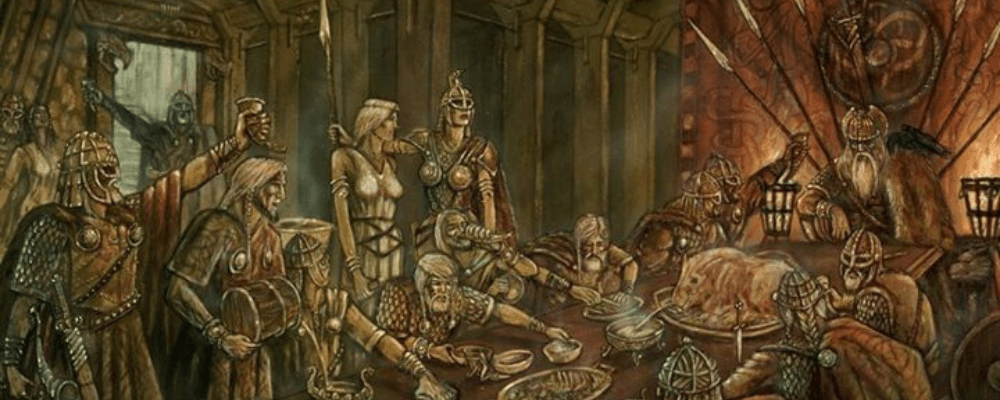
Bragi Boddason
Some sources suggest that the Vikings believed that the Bragi who dwelled in Valhalla was none other than Bragi Boddason, a 9th-century Skaldic poet who served several important Swedish leaders, including none other than Ragnar Lothbrok.
This Bragi is often called the first Skaldic poet, and he was certainly famous. Snorri Sturluson reports quoting this Bragi several times in his works. He claims to quote Bragi’s poem about Ragnar Lothbrok, and also when telling the story of Thor and his fishing trip, Gefjun’s plowing of Zealand from the Swedish mainland, and a few other tales.
The suggestion is that when Bragi Boddason died, Odin took him to Valhalla to be the bard of his hall there. This would mean that Bragi numbered among those dead warriors.
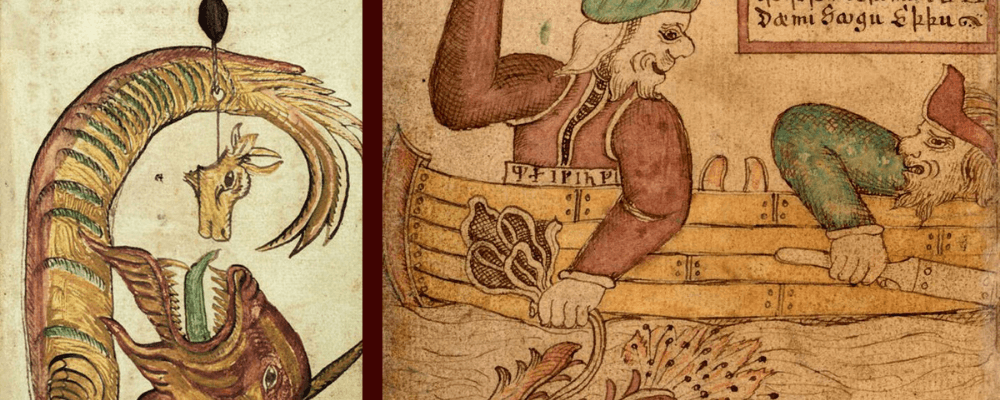
Bragi the God
But later sources, written by Christians in the 13th century, do not take Bragi to be a deceased hero, even one quasi deified for his skill. They number him among the gods themselves.
He is described in some sources as a son of Odin. He is also consistently identified as the husband of the goddess Idun, who is the guardian of the golden apples of immortality that the gods eat in order to maintain their eternal youth and strength.
Bragi is most prominently mentioned as dwelling among the Aesir gods in Snorri Sturluson’s Lokesanna. Here he is described as being present at a feast alongside the other gods when Loki, the god trickster arrives and abuses everyone.
Loki arrives at a feast after having been exposed as playing a role in the death of Odin’s son Balder. Understandably, none of the gods want him there. It is actually Bragi who first denies Loki entrance, though he is overruled by Odin when Loki reminds him of the pact of brotherhood that the two have made.
Nevertheless, this suggests that Bragi may have played the role of a welcomer to the feast, as he is often seen doing in Valhalla.
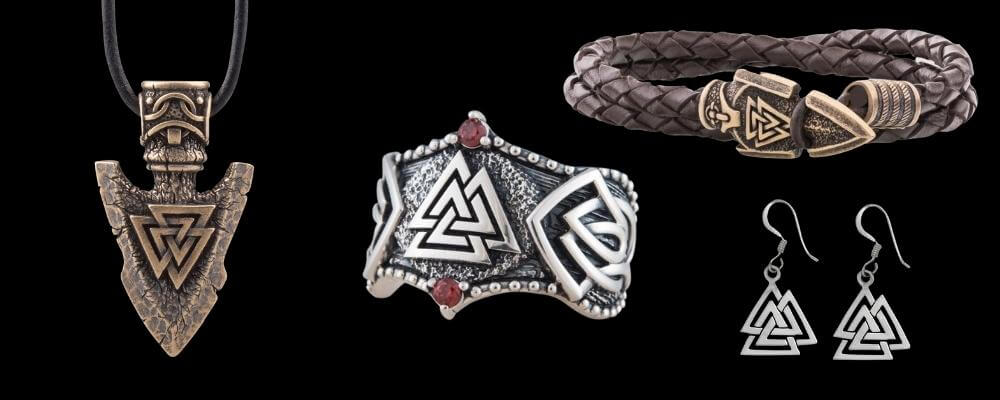
When he does enter the hall, Loki then greets all the gods and goddesses present, with the exception of Bragi. This could be meant as a simple slight, or it could imply that Bragi was in some way different from the Aesir gods present. If he was a dead warrior, Loki may have thought that he did not deserve the same respect.
Bragi then seems to try to win Loki over, offering him his sword, horse, and arm ring as gifts. But Loki refuses and accuses Bragi of cowardice.
It is again tempting to see this as a sign that Bragi numbered among the dead. It could be an indication that he was in Valhalla because of his skills as a poet, rather than his skills as a warrior, like the other inhabitants of the hall.
Bragi’s wife Idun then tries to defuse the situation, though this prompts Loki to state that she is embracing her brother’s slayer. This seems to be a reference to a story from Norse mythology that has been lost.
In a different source, when Hakon the Good is taken to Valhalla, Odin sends Hermodr and Bragi to greet him. While this might suggest that Bragi is a god and a son of Odin, just like Hermodr, this too is not clear.
This is because while there is a Hermodr, god, son of Odin, and divine messenger, a deceased warrior called Hermodr is also mentioned in a few stories. There is no way of knowing which is mentioned in the same breath as Bragi.
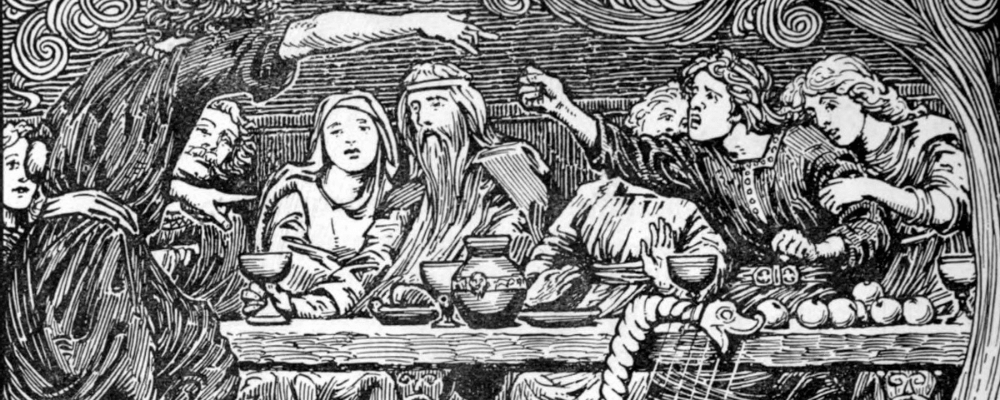
God of Poetry
Whether Bragi was one of the Aesir or a mortal man deified, there is no evidence that he was ever worshipped by the Vikings in any capacity.
In fact, the deity most associated with poetry by the Vikings was Odin. It was Odin who drank the Mead of Poetry and shared its secrets with mankind.
Mead of Poetry
The story of the Mead of Poetry is a complicated epic reported by Snorri Sturluson in his Skaldskaparmal.
It begins at the end of the war between the Aesir and the Vanir gods. At the conclusion of their war, in order to seal a peace deal, all the gods on both sides spat into a vat. The liquid that was inside was highly potent, so they used it to create a man, called Kvasir.
Kvasir was so wise that there was no question that he could not answer. He traveled the nine worlds of the Norse cosmos and was welcome everywhere he went as he shared his knowledge freely.
When two dwarves named Fjalar and Galar encountered Kvasir, they realized that he was special. The dwarves were the craftsmen of the Norse cosmos and they were always looking for magical ingredients to imbue into their work to make them magical as well. So, the dwarves kidnapped and killed Kvasir to obtain his blood.
They mixed Kvasir’s blood with honey to make a mead, which became the Mead of Poetry. This potent liquid would imbue the drinker with the powers of a poet or scholar.
These two not very nice dwarves went on to kill a giant couple, which understandably angered their son, the giant Suttungr. He went to avenge himself on the dwarves, but they begged for their lives, offering him the Mead of Poetry in exchange. The giant accepted.
Suttungr took the mead home and hid it in a mountain called Hnitbjorg and charged his daughter Gunnlod with its protection.
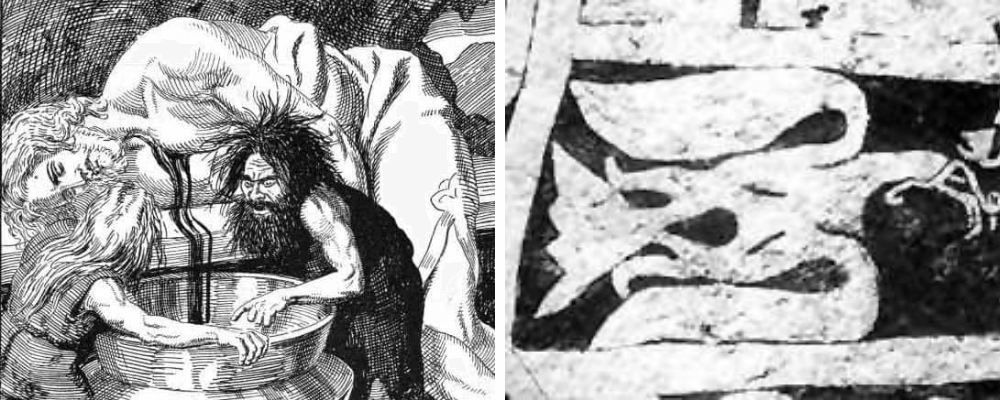
Odin’s Quest
It is well known that Odin would do anything to obtain knowledge. So, when he heard about the Mead of Poetry, he immediately had to pursue it.
Odin disguised himself as a being called Bolverk and made his way into the confidence of Suttungr’s brother Baugi. Through him, he was able to sneak into the mountain where the mead was held.
There he encountered Gunnlod and pretended to be in love with her. This enabled him to stay with her in the mountain for three nights, during which time he drank all of the mead, holding it inside his body.
His mission complete, Odin transformed himself into an eagle and flew away. But Suttungr, hearing what happened, also transformed himself into a bird and chased Odin.
When Odin returned to Asgard, just ahead of the giant who was killed by the Aesir, he spat the mead out into three great drinking horns so that he could share it with the gods and truly gifted poets.
These three horns form the horned Triskelion symbol, one of the many symbols associated with Odin. We have several horned Triskelion pieces in our shop.
Some suggest that Bragi was the son of Odin with Gunnlod, conceived during those three nights of trickery, and then sent to Asgard to live with his father.
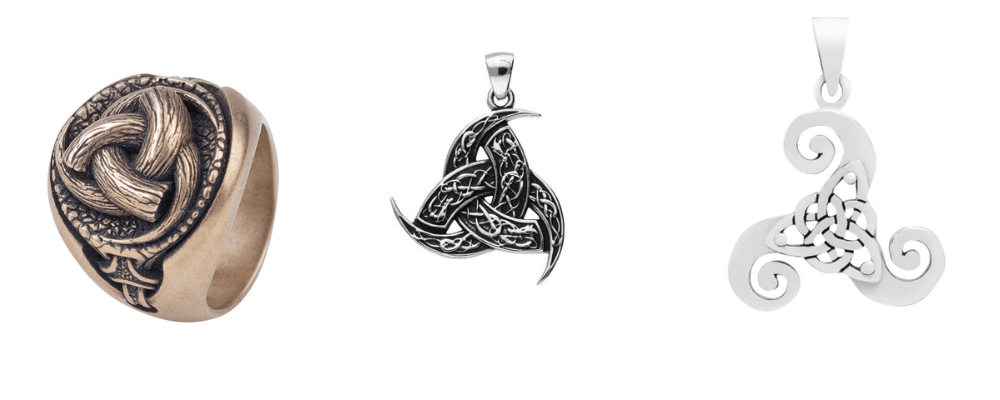
What do you think?
So, what do you think? Based on the surviving evidence, do you think that Bragi is a son of Odin and of the Aesir blood, or one of the deified dead taken to Valhalla? Do you think it matters?
